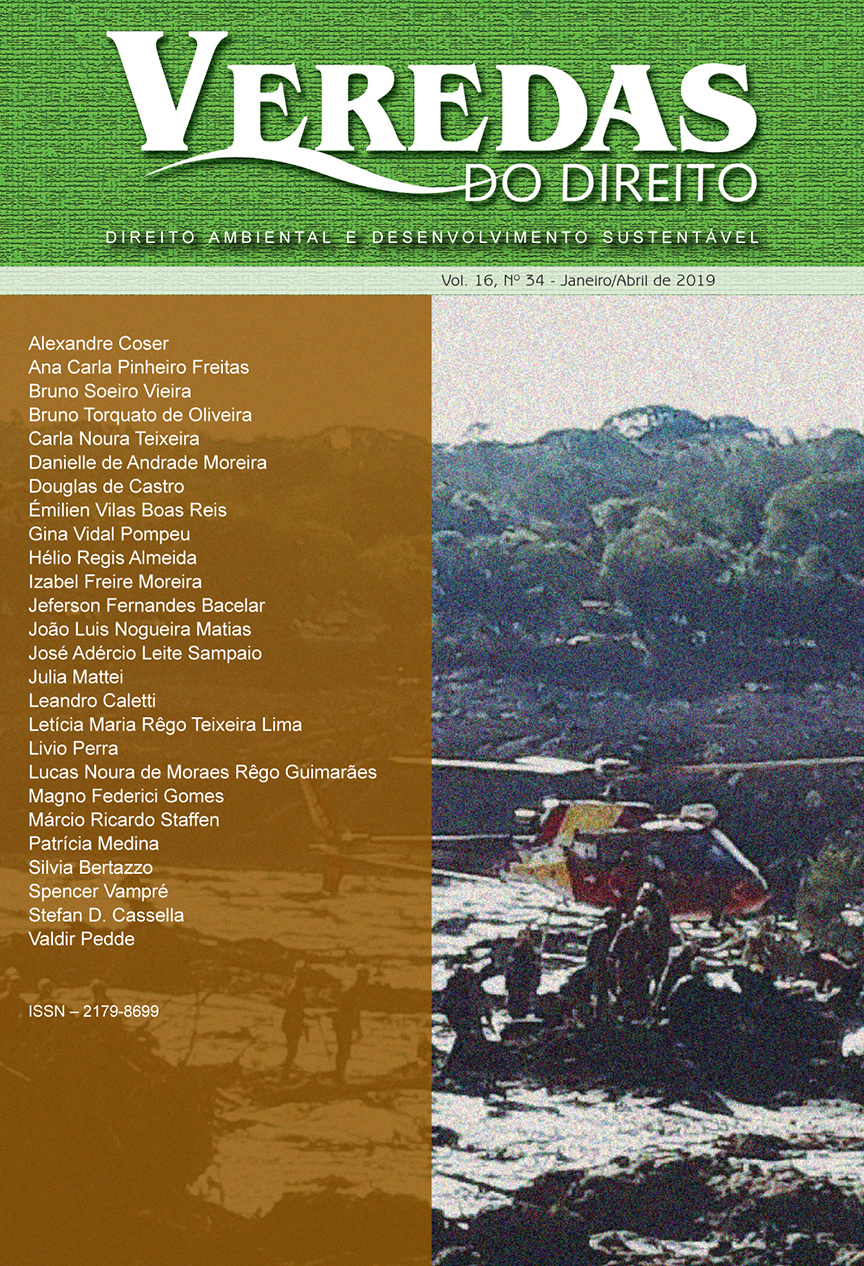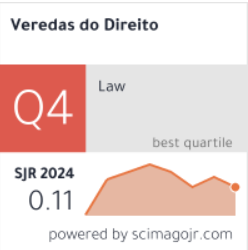THE RESURGENCE OF OLD FORMS IN THE EXPLOITATION OF NATURAL RESOURCES: THE COLONIAL ONTOLOGY OF THE PRIOR CONSULTATION PRINCIPLE
DOI:
https://doi.org/10.18623/rvd.v16i34.1387Palabras clave:
INTERNATIONAL ENVIRONMENTAL LAW, PRIOR CONSULTATION PRINCIPLE, IMPERIALISM, TWAIL, ELITE THEORYResumen
The need to deal with anthropogenic effects over the environment surfaced in the 1960´s mainly due to accidents all over the world with severe impacts on the environment. Therefore, International Environmental Law gained traction and international institutions legitimacy based on the universality of the formation of International Law and the objectivity and neutrality of the science, generating essential exclusions and implication for Global South countries. As colonial domination as part of the imperial projects ceased with the recognition of the sovereignty and self-determination of nations, a new form of granting access to natural resources was necessary. In this study, we argue that International Law and Institutions are proxies of the old ways of imperialism and colonial venture by imposing legal obligations and standard practices to countries disregarding their own experiences, cultures, and values, which has in the principle of prior consultation and its derivatives the most representative stance. As such, the study relies on TWAIL and Elite Theory to unveils the role of International Law and local elites to legitimize the domination and exclusion.Citas
ANGHIE, A. Imperialismo y Derecho internacional. 1st edition ed. [s.l.] Siglo del Hombre, 2016.
ANGHIE, A. Finding the peripheries: sovereignty and colonialism in nineteenth-century international law. [s.d.].
BEDJAOUI, M. Pour un nouvel ordre economique international. [s.l.] Unesco, 1979.
BEST, H. et al. (EDS.). The Palgrave Handbook of Political Elites. 1st ed. 2018 edition ed. London, United Kingdom: Palgrave Macmillan, 2017.
CHIMNI, B. S. International Institutions Today: An Imperial Global State in the Making. European Journal of International Law, v. 15, n. 1, p. 1“37, 1 fev. 2004.
DASGUPTA ANIRUDDHA; BEARD VICTORIA A. Community Driven Development, Collective Action and Elite Capture in Indonesia. Development and Change, v. 38, n. 2, p. 229“249, 25 abr. 2007.
ESCOBAR, A. Encountering Development: The Making and Unmaking of the Third World. Edição: With a New preface by the author ed. Princeton, N.J: Princeton University Press, 2011.
GRUBER, L. Ruling the World. Princeton, N.J: Princeton University Press, 2000.
HOLLANDA, C. B. DE. Teoria das Elites. Rio de Janeiro, RJ: Zahar, 2011.
LYOTARD, J.-F. La Condicion Postmoderna/ Postmodern Condition. 8 edition ed. Madrid: Catedra Ediciones, 2004.
MEARSHEIMER, J. J. The Tragedy of Great Power Politics. 1 edition ed. New York: W. W. Norton & Company, 2014.
MORRISON, W. Filosofia do Direito. Dos Gregos ao Pós-Modernismo. Edição: 2a ed. [s.l.] WMF Martins Fontes, 2012.
MUTUA, M.; ANGHIE, A. What Is TWAIL? Proceedings of the Annual Meeting (American Society of International Law), v. 94, p. 31“40, 2000.
O caso do rompimento da barragem no Rio Doce. Disponível em: <http://sur.conectas.org/o-caso-rompimento-da-barragem-no-rio-doce/>. Acesso em: 11 abr. 2018.
O DEVER DE CONSULTA AOS POVOS INDÍGENAS E A CONSTRUÇÃO DA USINA DE BELO MONTE. Disponível em: <http://direitosp.fgv.br/node/41966>. Acesso em: 11 abr. 2018.
OKAFOR, O. C. Critical Third World Approaches to International Law (TWAIL): Theory, Methodology, or Both? International Community Law Review, v. 10, n. 4, p. 371“378, 1 dez. 2008.
PLATTEAU JEANPHILIPPE. Monitoring Elite Capture in CommunityDriven Development. Development and Change, v. 35, n. 2, p. 223“246, 13 abr. 2004.
PUTNAM, R. D. The Comparative Study of Political Elites. Englewood Cliffs, N.J: Prentice Hall, 1976.
REIS, E. P.; MOORE, M. Elite Perceptions of Poverty and Inequality. Cape Town ; London and ; New York: Zed Books, 2005.
SCHILLING-VACAFLOR, A.; FLEMMER, R. Why is prior consultation not yet an effective tool for conflict resolution? The case of Peru. [s.l.] GIGA Working Papers, 2013. Disponível em: <https://www.econstor.eu/handle/10419/72462>. Acesso em: 11 abr. 2018.
TRUBEK, D. Toward a Social Theory of Law: An Essay on the Study of Law and Development. Faculty Scholarship Series, 1 jan. 1972.
VIRIYO, A. Principle of Sustainable Development in International Environmental Law. Rochester, NY: Social Science Research Network, 22 ago. 2012. Disponível em: <https://papers.ssrn.com/abstract=2133771>. Acesso em: 10 abr. 2018.
ZUGMAN, D. L. O dever de consulta aos povos indígenas e a construção da usina de Belo Monte. Revista Discente DIREITO GV - redGV, v. 1, n. 3, p. 94“106, 1 jul. 2013.
Publicado
Cómo citar
Número
Sección
Licencia
I (we) submit this article which is original and unpublished, of my (our) own authorship, to the evaluation of the Veredas do Direito Journal, and agree that the related copyrights will become exclusive property of the Journal, being prohibited any partial or total copy in any other part or other printed or online communication vehicle dissociated from the Veredas do Direito Journal, without the necessary and prior authorization that should be requested in writing to Editor in Chief. I (we) also declare that there is no conflict of interest between the articles theme, the author (s) and enterprises, institutions or individuals.
I (we) recognize that the Veredas do Direito Journal is licensed under a CREATIVE COMMONS LICENSE.
Licença Creative Commons Attribution 3.0








